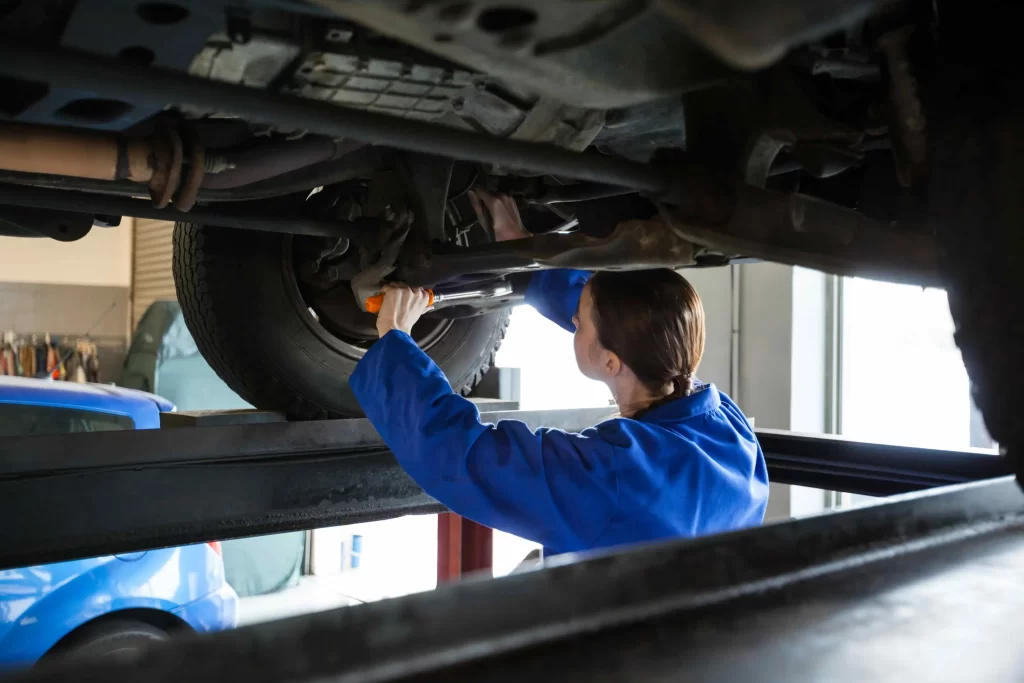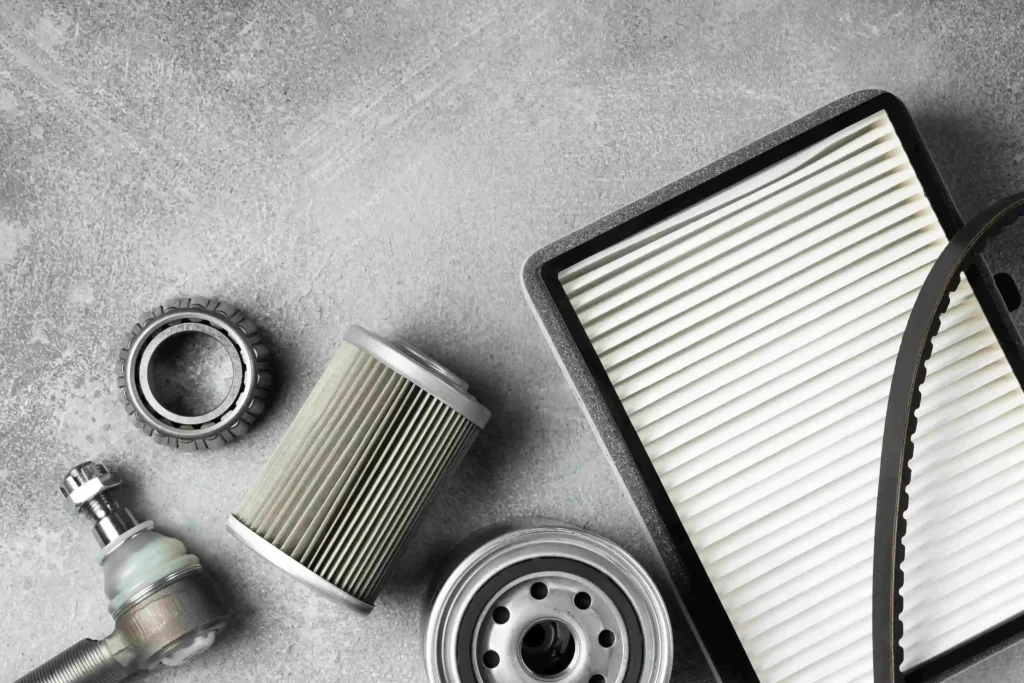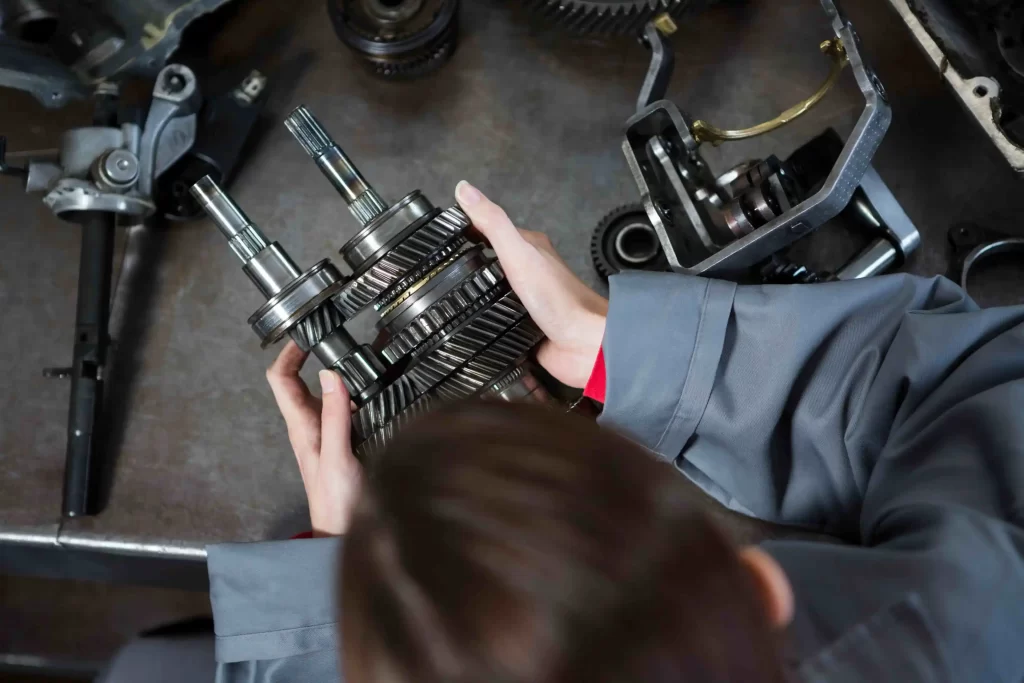Your business relies highly on your trucks to keep things running smoothly and make deliveries on schedule. But they might lead to issues and delays if your fleet is not properly maintained. Preventative maintenance can help with it. It all comes down to maintaining optimal fleet conditions, preventing malfunctions, and minimizing maintenance costs. We’ll go over the fundamentals of fleet maintenance in this article. We can take care of anything from tire maintenance to frequent oil changes. For dependable performance and a longer lifespan, take charge of your truck’s maintenance today rather than waiting until something goes wrong.
1. Check fluid levels
Maintaining the essential fluids in your truck regularly is critical for maximum endurance and performance. To prevent engine overheating, drivers pay attention to coolant levels along with engine oil. Power steering fluid maintains the smooth operation of steering parts, and clean windshield washer fluid guarantees drivers a clear view. To keep brake performance and avoid moisture absorption, the brake fluid should also be changed on a regular maintenance basis. Monitoring these fluids takes a few minutes, but doing so can save expensive repairs later on. Any decrease in fluid levels suggests a possible problem that needs to be fixed immediately to prevent more serious issues.
2. Change fluids

Keeping your truck’s engine in tip-top shape is all about those oil changes on a regular basis. Following the manufacturer’s guidelines for when to swap out the oil is key because dirty oil and debris can mess with how your truck maintenance engine runs. For trucks made in 2008 and later, aim for an oil change every 7,500 miles or every six months. Just staying on top of this simple maintenance can help keep your truck running smoothly for the long haul! Every 5,000 miles or every six months, older vehicles (2007 and older vehicles) should have an oil and filter change. Heavy towing, dusty environments, off-road driving, or regular E85 gasoline use might require adjustments. Maintaining engine efficiency and removing debris both depend on routine oil filter changes.
3. Verify tire pressure
Experienced truckers swear by one golden rule and that is to keep those tire pressures in check. Why? Because your tires keep you glued to the road, and you don’t want them feeling deflated! So, make sure they’re pumped up just right to handle whatever the road throws your way. Trust me, it’s a small effort that pays off big time when it comes to staying safe on the highways. Aside from avoiding uneven wear, proper inflation maximizes fuel efficiency and gives excellent braking, grip, and load-carrying capacity. Consider it your truck’s way of being stable and prepared for any upcoming trip. So check your tire pressure regularly—both your tires and the wallet will appreciate it!
4. Check your tires

Make sure to stay on top of your tire maintenance—uneven tread might signal alignment, suspension, or tire pressure issues. Remember to give your tires a regular once-over to gauge tread depth and overall condition. Trust me, you don’t want to be stuck dealing with a blowout on the road—it’s a costly, nerve-wracking, and downright inconvenient ordeal. So, keep those tires in check and save yourself the headache. For example, take care of your underinflated tires and spare yourself the trouble. So, spare yourself the money and headache by keeping those tires in check. So remain ahead of the game and regularly perform a comprehensive inspection on those tires. We assure you that a tiny effort now can save you a great deal of money and trouble later.
5. Inspect your brakes
It is extremely important to make sure you can brake safely when towing a vehicle with a big weight. Keep a careful check on your brakes and replace them as necessary, particularly when the minimum wear condition is reached. Examining the brake pads for even wear from front to back and side-to-side contact is also vital. Any anomalies can point to an imbalance in your vehicle or braking system, factors that could make stopping less effective. Therefore, keep in mind that brake maintenance is essential to keeping your truck safe while driving.
6. Check air filters

One easy but effective approach drivers take to improve engine performance and lower fuel consumption is to keep your vehicle and air filter clean. Reduced airflow to the engine due to dirt buildup causes power loss and lower fuel efficiency. If you drive on dusty roads often, make it a habit to check and replace your air filter regularly. You can make the most of every mile you drive by keeping up with proactive and frequent oil filter maintenance, which will guarantee your engine operates smoothly and efficiently.
7. Do a battery load test and electrical system verification
Extended journeys and frequent halts can put significant strain on your truck’s electrical system. That’s why it’s wise to incorporate servicing your battery, alternator, and electrical components into your annual maintenance schedule. Especially if you’re in colder regions, conducting a pre-winter inspection becomes even more critical to stave off potential charging problems. You can prevent any unwanted and costly roadside breaks and maintain peak performance by being diligent with these evaluations, services, and inspections. It all comes down to being proactive in making sure the electrical system in your truck is primed and prepared for any situation that would arise on the road.
8. Inspect your gearbox and clutch

Regularly checking your truck maintenance gearbox and clutch is essential when you’re hauling heavy loads with high-torque engines. Preventive maintenance helps catch any potential issues early and establish smooth operations on the road. Keeping an eye on your clutch is just as crucial to prevent slipping, which can affect semi-truck in both reliability and fuel efficiency. By performing regular maintenance and staying proactive with these inspections, you’ll avoid unexpected problems and maintain your truck’s performance mile after mile. After all, a well-maintained gearbox and clutch are vital for a smooth journey.
9. Check out your exterior lighting
Truckers often opt for night driving to steer clear of traffic, for example, but having functional headlights and tail lights is crucial for safety. If your headlights are damaged, disconnect the wires, and replace the bulbs carefully to avoid harming the housing. Likewise, for tail lights, swap out the old bulbs and assembly, ensuring everything is securely fastened. Develop the habit of routinely checking the cab of your truck for warning lights to look for any burned-out bulbs before they go out, preventing future issues and guaranteeing a trouble-free vacation. Maintaining your truck’s safety and reliability is imperative.
10. Service your fifth-wheel platform
Issues with your semi truck or fifth-wheel platform can cause significant transportation delays and can even prevent your truck from hitting the road if you can’t properly attach your trailer. To avoid such hassles, make it a habit to inspect your truck or platform regularly and lubricate or adjust it as needed. Take the time to clean any dirt buildup from the platform mechanism and check for signs of excessive wear or parts that require replacement. By staying proactive with these inspections and maintenance tasks, you’ll guarantee smooth operations and minimize any downtime due to your semi truck or driver’s fifth-wheel issues.
Frequently Asked Questions
What is truck maintenance?
Maintaining commercial trucks means regularly checking and servicing them to warrant safety, reliability, and smooth operation. This serious job involves tasks like fluid monitoring, tire and brake checks, and addressing mechanical issues promptly. Preventing problems, extending the truck’s life, and improving performance through fleet maintenance and service, are the goals to save downtime and increase output.
What are the key benefits of truck maintenance?
Truck maintenance provides safety by preventing accidents due to mechanical failures, guarantees reliability and cost savings through proactive upkeep, extends lifespan, maintains compliance with regulations, improves fuel efficiency, and enhances resale value of vehicles.
How often should I do preventive maintenance?
The best approach to maintain the safety and smooth operation of your commercial vehicles, vans, and trucks is to do routine preventive maintenance. You can follow the manufacturer’s suggestions or industry norms. This means scheduling check-ups based on mileage, engine hours, or the last service date. The key is to stick to a routine to keep your vehicles, trucks, or commercial vehicles reliable and safe on the road.
What is fleet maintenance?
The process of keeping vehicles in sufficient functioning and good working order is to guarantee their safety, dependability, and extended road life. Creating a preventative maintenance program is key to responsible fleet management since it lowers operating expenses and enhances the results of vehicle inspections, service, and repairs, among other advantages.
Why do I need a fleet maintenance program?
Having a fleet maintenance program in place can maximize resale value possibility, lower fleet repair costs, centralize control, and guarantee fleets the greatest degree of driver safety.
What is the role of fleet managers?
Fleet managers at companies oversee an organization’s vehicle fleet, handling fleet maintenance and operations. They manage vehicle purchases, maintenance scheduling, fuel efficiency, route planning, and regulatory compliance. To make companies optimize productivity and cut expenses, fleet managers also frequently oversee driver training, safety initiatives, and an overall study of vehicle fleet performance.
Final Thoughts
It is important to emphasize the significance of taking care of your truck or commercial vehicle to maintain its best performance and minimize unnecessary downtime. No matter how experienced they are, truck drivers should always keep their fleets, cars, and trucks reliable and efficient when racking a lot of miles. Long-term benefits to your company, fleet, business, and yourself will result from including these repairs in your routine, which will keep your travels stress-free and easy. Contact us for your fleet maintenance needs.





